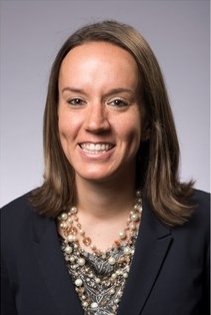News Archive
Prof. Ellen Matson named a 2019 Cottrell Scholar
 Ellen Matson, an assistant professor of chemistry at the University of Rochester, has been named a 2019 Cottrell Scholar by the Research Corporation for Science Advancement (RCSA), an organization devoted to the advancement of STEM through funding projects in the physical sciences. RCSA funds innovative research of college and university faculty members. The foundation was originally established by UC Berkeley professor Frederick Gardner Cottrell in 1912, who invented the electrostatic precipitator to counter air pollution produced by the industrial revolution.
Ellen Matson, an assistant professor of chemistry at the University of Rochester, has been named a 2019 Cottrell Scholar by the Research Corporation for Science Advancement (RCSA), an organization devoted to the advancement of STEM through funding projects in the physical sciences. RCSA funds innovative research of college and university faculty members. The foundation was originally established by UC Berkeley professor Frederick Gardner Cottrell in 1912, who invented the electrostatic precipitator to counter air pollution produced by the industrial revolution.
“The Cottrell Scholar (CS) program champions the very best early career teacher-scholars in chemistry, physics and astronomy by providing these significant discretionary awards,” wrote RCSA President and CEO Daniel Linzer in a newsletter announcing the funding recipients. “Outstanding candidates are admitted to the ranks of Cottrell Scholars through a stringent peer-review process based on their innovative research proposals and education programs,” said RCSA Senior Program Director Silvia Ronco. As scholars rise to academic leadership roles, several levels of competitive funding are available to assist them. Post-tenure Cottrell Scholars may compete for the prestigious FRED (Frontiers in Research Excellence and Discovery) Award supporting early stage, potentially transformative research.
Professor Matson is one of 24 academic scientists to receive the scholarship this year, which awards $100,000 to fund the research of each of the scholars. She will also be invited to attend the Cottrell Scholars annual networking event, which will be held this July in Tucson, Ariz.
Matson plans to use some of the award money to support the work of her research group on the investigation of homogeneous models of reducible metal oxide surfaces. These molecular analogues of redox active, extended solids will allow for the use of advanced spectroscopic techniques, traditionally reserved for homogeneous systems, for mechanistic analysis of oxygen atom vacancy formation and subsequent small molecule activation. Ultimately, it is anticipated that these studies will answer persistent questions surrounding the electronic requirements and consequences of the formation of oxygen vacancies on heterogeneous surfaces. Insights from this work will reveal important design considerations for advanced heterogeneous catalysts for the production of chemical fuels from inert and abundant chemical pollutants. During the funding period they also plan to develop a course for undergraduate students targeting the development of “soft-skills,” specifically the communication of scientific principles to diverse audiences.
Congratulations Ellen!
